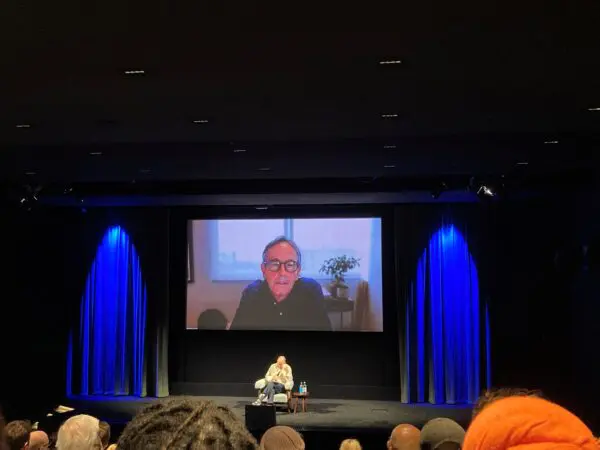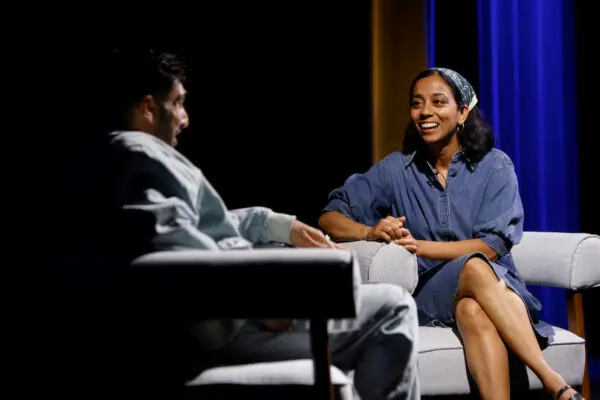Jumping from Kantian ethics through to Guardians of the Galaxy, Schamus challenged the audience with a wide-range of philosophical arguments, and asked them whether screenwriting can be considered an art form, or if screenwriters could be considered artists.
He began by positioning an audience’s expectations of films versus theatre. Referring to Shakespeare, he suggested that if we see a bad production of Much Ado About Nothing, we complain about the performers rather than the text. But with a poor film, we don’t say “You know, that film was terrible. The script was great, but the film, what a terrible job they did with that script!” He argued a similar point on opera – that while no one comments if Rigolleto is restaged multiple times, a film is rarely remade using the same script.
Schamus stated that one of the reasons these questions are “hard to answer is because we, while we ask for respect as artists, we really don’t know what we mean when we say art in this context.” He continued this further, saying that when a poet has finished writing a poem, it is a finished object. But when a screenwriter finishes a screenplay, “you have created approximately 124 pages of begging for money and attention.”
When we talk about art we actually constrain ourselves by using protocols and judgements and rules and regulations, signalling to each other our culture, the status of it.
The fundamental relationship between commerce and art formed the crux of Schamus’ lecture, a dazzling exploration of the origins of copyright, whether our personal stories can be owned by somebody else, and how the first definitions of art were as “a whole new object of human experience and production that solicits the idea of freedom in the world.”
In the Q&A that followed, Schamus said that “if you’re in this business, you’re in a business, and unfortunately that does mean that the monetisation of your experience is a fact and you have to deal with it.” But he offered solace by suggesting that, instead of embracing this fact and “becoming just an absolute creep, the other way is to find some kind of creative relationship to negotiating with the flow of capital and how you’re going to ride it.” With his successful partnership with Ang Lee over the years, Schamus proves it is possible to produce great work in a climate whether everything is capital and has a value attached – whether or not it can be considered art is a question he left open to the audience.










